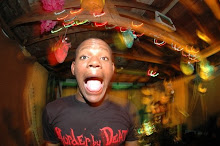Form -
Howl is a poem divided into three parts rather than stanzas, which is generally how poetry is broken up when broken up into sections. But the poem is broken up into stanzas within each section of the poem. The first part of the poem is all one sentence which is broken up in alternating stanzas of one, two, and three lines. According to a quote by Ginsberg regarding the structure of Howl, he said, “Ideally each line of 'Howl' is a single breath unit. My breath is long — that's the measure, one physical-mental inspiration of thought contained in the elastic of a breath.” The second part of the poem isn’t as long as the first part and isn’t one like sentence like the first part. The second part of the poem is thirty lines long and, like the first part, it is broken up in alternating stanzas of one, two, and three lines. There is also some repetition with the mentioning of ‘Moloch’ in almost every line. The third, and final part of Howl, is structurally distinct from the rest of the poem. It has forty-eight lines and has one line stanzas until towards the end of the poem. This part has repetition, similar to the second part, but rather than the mention of ‘Moloch’, there is the repetition of the line, “I’m with you in Rockland.” This line repeats almost every other line.
Content –
When Howl was first read in 1955 it shocked a lot of people. It shocked people due to its uniqueness because there wasn’t anything else like it at the time. It was considered to mark the beginning of post-modernism. To me it seems that the first part of the poem Ginsberg’s commentary on the society around him. “I saw the best minds of my generation destroyed by madness, starving hysterical naked, dragging themselves though the negro streets at dawn looking for an angry fix”. He goes on to talk about “angel-headed hipsters…who were expelled from the academics for crazy and publishing obscene odes on the windows of the skull”, and “who passed through universities with radiant eyes hallucinating Arkansas and Blake-light tragedy among the scholars of war.” Some of the events in the poem are autobiographical and some are about his friends and their experiences. It seems that Ginsberg is the speaker himself making observations of the world surrounding him. He’s part of the world that he talks about; these are stories about him and his friends. His word choice throughout the poem is interesting. He uses a lot of cacophonous and visually strong words, there’s a very harsh sound throughout the poem. For example, “…a lost battalion of platonic conversationalists jumping down the stoops off fire escapes off windowsills off Empire State out of the moon yacketayakking screaming vomiting whispering facts and memories and anecdotes and eyeball kicks and shocks of hospitals and jails and wars”. Overall I enjoyed this poem because of its content and how different it is from anything I’ve read or written. Howl is a perfect example of the type of poetry I’ve always tried to write, and it’s a great source of inspiration for the future.
Subscribe to:
Post Comments (Atom)

No comments:
Post a Comment